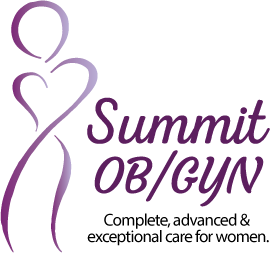
Prenatal Vitamins: Should I take them before I am pregnant?
Prenatal vitamins are one of the few supplements recommended by doctors across the board. There are several vital benefits to taking a prenatal vitamin daily. However, when should you start taking a prenatal vitamin? And what’s in a prenatal vitamin that makes it so beneficial to women?
Folic Acid
The Center for Disease Control recommends women of the childbearing age, 15 years to 45 years old, receive 400 micrograms of folic acid daily. This can be in the form of a prenatal vitamin or a fortified cereal. Folic acid is a B vitamin that plays a key role in DNA production and making new cells.
For embryos, folic acid is needed the within the first few weeks of conception to help prevent neural tubal defects to the spine and brain. Insufficient folic acid can result in conditions such as spina bifida and anencephaly. Because this stage of development for the brain and spine is so early, and because around 45% pregnancies are unplanned, folic acid is considered a type of preventative measure for the fetus. For these reasons, the CDC recommends that any woman who could become pregnant should be aware of their folic acid intake.
For women that are planning to become pregnant and haven’t already been receiving the recommended folic acid, Dr. Biggs and Dr. Cohn encourage a prenatal vitamin with folic acid at least 3 months before trying to conceive. Folic acid can be received from foods such as dark, leafy green, nuts, seeds, eggs and fortified cereal. However, it can be hard to reach the recommended daily values from food alone. Hence a prenatal vitamin supplements the folate-rich foods that women should be consuming regularly.
Iron
Iron is another very important mineral that a women’s body needs to make red blood cells. Specifically during pregnancy, iron aides in supplying blood and oxygen to the fetus. With this extra demand during pregnancy, it can tax a female’s iron stores.
The American College of Obstestricians and Gynecologists recommends 27 milligram of iron a day. That is double the needed amount for a female that is not pregnant. Iron can come from foods such as red meat, poultry, fish, dried beans/peas, fortified cereals, and prune juice. If you’re still not positive you’re getting enough, the ACOG notes that taking a prenatal vitamin can help ensure you’re consuming as much iron you need when pregnant.
Calcium, Vitamin D & B6
Calcium, Vitamin D and B6 are also included in a prenatal vitamin. Calcium is used to build the bones and teeth of the fetus. 1000 mg are needed daily in and outside of pregnancy. Calcium-rich foods include cheese, yogurt, broccoli, dark, leafy greens and sardines. Vitamin D actually helps with the absorption of Calcium. Women, pregnant or not, need 15 micrograms of vitamin D every day. Some may receive their sufficient amount of vitamin D from sun exposure and diet (e.g. vitamin D-fortified milk and salmon). Finally, Vitamin B6 is a included in a most prenatal vitamins to help with nausea and vomiting.
As you evaluate your health and nutrition, consider if your diet needs a few adjustments to receive the recommended vitamins and minerals. Additionally, talk with your doctor at Summit OBGYN for any questions regarding a prenatal vitamin to supplement your daily diet.


